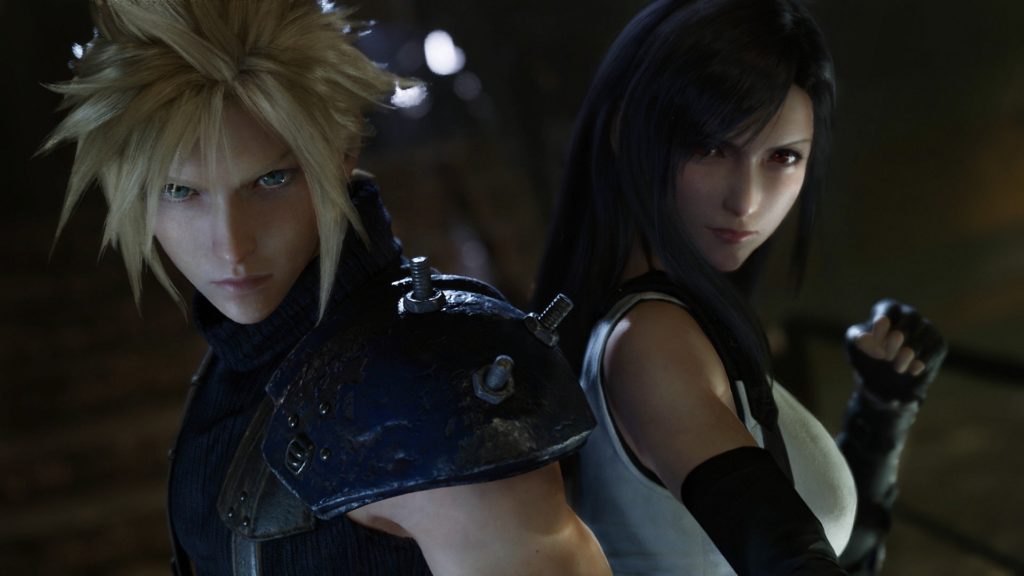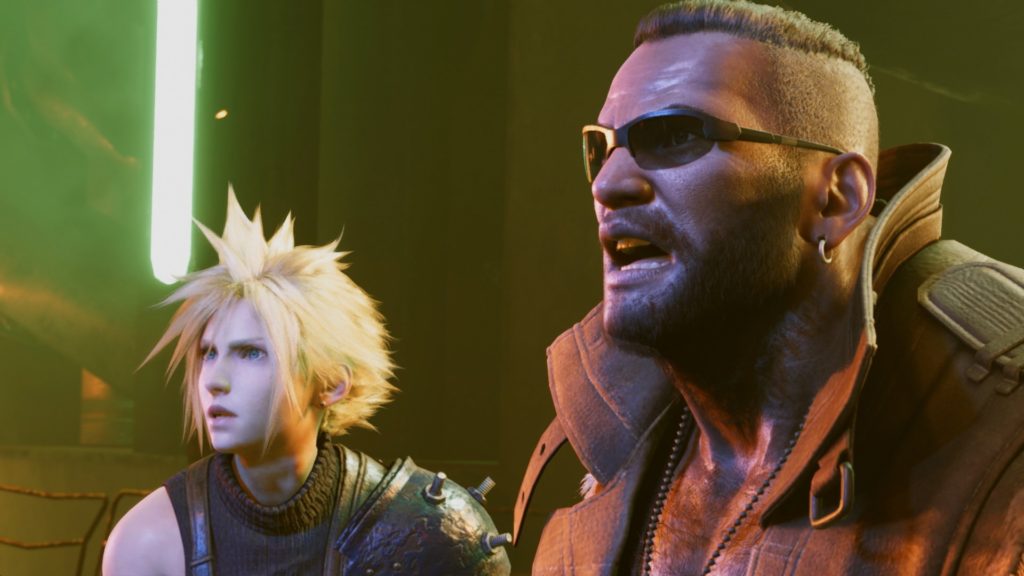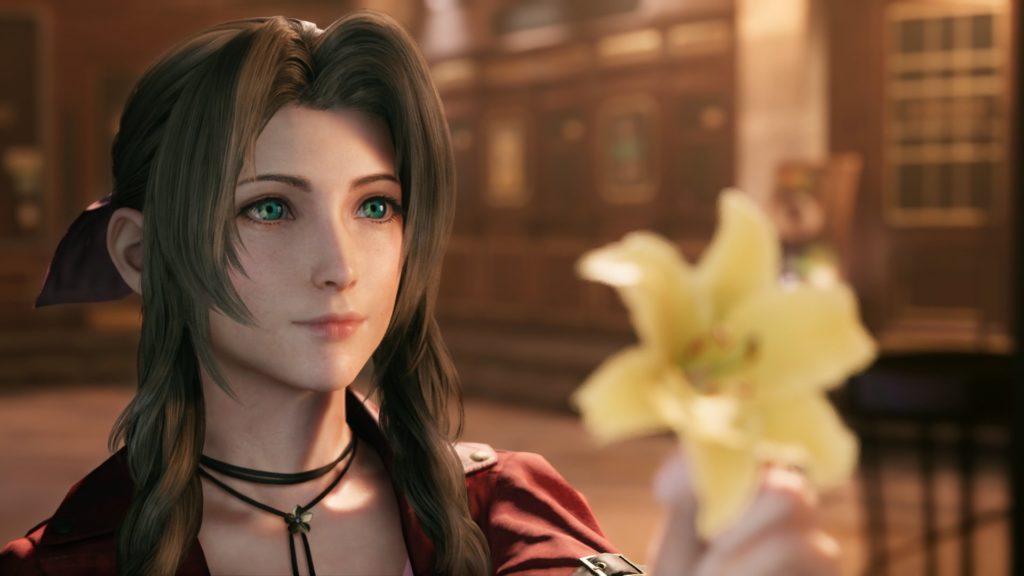
The original, released 23 years ago, sold more than 11 million copies and inspired spinoffs, animated movies and fan fiction. The bar is high for the new game, which will drop Friday.
For nearly two decades, the idea of a remake for the beloved video game Final Fantasy VII seemed as outlandish as your neighbor’s son’s best friend’s uncle actually working for Nintendo.
But fans were given a glimmer of hope in 2015, when the Japanese publisher Square Enix announced at the industry trade show E3 that the remake was under development. Raucous applause and internet bedlam followed. Five years later, the simply titled Final Fantasy VII Remake will be released on Friday for the PlayStation 4.
For many fans, the very existence of this remake is surreal. The original game, released in 1997 for the first PlayStation, was the seventh mainline entry in a series of popular role-playing games that crossed traditional Dungeons & Dragons fantasy with robots, magical machines and giant spaceships fashioned to look like whales.
All of the Final Fantasy games have been successful, but few have sold as well as the seventh (more than 11 million copies) or lingered in the cultural consciousness for quite as long. For example, the first six Final Fantasy games inspired 924 pieces of fan fiction on the website FanFiction.net. Final Fantasy VII alone has 2,005.
A large part of the game’s popularity was its storytelling, which was revelatory for the time. Each Final Fantasy game tells a stand-alone story, despite the numbering. Final Fantasy VII stars the mercenary Cloud Strife, with spiky blonde hair and a comically oversize sword, on his quest to hunt down the villain Sephiroth and unravel the mysteries of their shared past.
The original Japanese script became near-incomprehensible in its translation to English because of a compressed localization schedule that filled the game with mangled dialogue — “This guy are sick” was a fan favorite. The story was still gripping enough to resonate with even the most cynical player. The game has spawned animated films and spinoffs and has been rereleased in its original form on every modern gaming platform, including on cellphones.
Yet a remake always remained a dream. The video game industry, like Hollywood, has made a common practice of remastering and remaking old hits — particularly welcome for older games with graphics or controls that have not aged gracefully. Demand for a Final Fantasy VII remake began gaining traction around 2001, when voice acting and full three-dimensional graphics became more widespread. In the subsequent years, fans would beg for Square Enix to revisit the beloved game. A 2014 poll asked over 10,000 Japanese gamers which title they’d most like to see remade. The No. 1 answer was Final Fantasy VII.

When journalists asked Square Enix executives whether a remake might ever arrive, they would hem and haw. The technology was not there yet. They would develop it only if it took less than a year, or only if they first made a new Final Fantasy game that surpassed the quality of Final Fantasy VII. If they did it, one executive claimed, then Final Fantasy would be finished as a series.
Twenty-three years later, the remake is here, and the results offer a striking look at how drastically video game technology has evolved over the past two decades. Although it seemed revolutionary in the 1990s, the original Final Fantasy VII looks blocky and primitive today, with noseless heroes and constricted levels. In contrast, the remake features eye-popping graphical fidelity and characters who look so realistic you can almost smell their sweat.
The script is new, and the combat is different, eschewing the original game’s menu-based battles (in which your characters would line up across from enemies on a battlefield, each acting only when it was their turn) for a more action-heavy system. Final Fantasy VII Remake feels less like an adaptation and more like a new game wearing the original game’s skin.
Despite the improvements in graphics and gameplay, there’s a catch. Rather than release the entire game in one shot, the developers decided to split it into episodes. And they have not revealed how many episodes are planned or how they will be connected.
The first episode takes place within Midgar, a gritty, pizza-shaped city that served as an introduction to the original game. Players would be out of Midgar in four or five hours, off to spend another 30 or 40 hours adventuring across the rest of the game’s world. In the remake, the first episode alone can take more than 40 hours to finish. It’s as large as an entire Final Fantasy game, yet it tells only a fraction of the original story.
To extend this first act, the game’s developers have added new scenes and expanded on old ones. Characters who had no more than a few lines of dialogue in the original game, like the gung-ho soldier Jessie and her buddies Biggs and Wedge (named after “Star Wars” characters, a long-running Final Fantasy tradition), are now fleshed-out members of the cast. Sections of Midgar that were easy to zip through are now lengthy, beautifully rendered towns and dungeons.
The trade-off for the added depth is that the bulk of Final Fantasy VII will not be included in the first episode. As a point of comparison, consider Peter Jackson’s “The Hobbit,” a movie trilogy that adapted J.R.R. Tolkien’s book into an eight-hour saga. But Final Fantasy VII Remake is more like someone rewrote “The Hobbit” as a new book series, with the entirety of the first entry taking place before Bilbo Baggins has even left the Shire.
Some hard-core fans are wondering just how long it will take Square Enix to finish the entire project.
“I’m going to be so bummed out knowing that it will end before we even get to the good part,” said Hezli Hadi, 35, a Final Fantasy VII fan in Malaysia. “I will buy it on launch because I’m still a big fan, but after Part 1, I think I’ll stop.”
Khurram Imtiaz, 29, a Final Fantasy fan in Islamabad, Pakistan, said that at first he felt the need to defend Square Enix’s choices, but he gradually grew more skeptical. He called it a “double-edged sword” — he is pleased to be able to play this first episode of the game before the entire project is complete, but concerned that “it doesn’t even offer the complete story.”
“Crucial party members are missing,” Mr. Imtiaz said, “and there are questions regarding how progression will be handled, the open-world exploration segments, pricing of the upcoming episodes and, more importantly, their release schedule.”

But others have embraced the structure. “As it’s become clear how much they’ve added, and how big the first episode will be, I’ve talked myself into being on board,” said Eli Ethridge, 36, of Evansville, Ind.
The remake also has a relevancy for today’s world. Midgar is split into haves and have-nots, with the bourgeois residing on the upper level and the less-fortunate citizens living in the slums beneath. At the top of the food chain is Shinra, a megacorporation that controls the city’s energy, security and media, and sits only a few dystopian notches away from the likes of Facebook and Google. Shinra’s wealth comes mainly from mako, an electricity-producing energy that the company harvests using huge fracking devices called mako reactors. When the game opens, Cloud is working alongside the eco-terrorist group Avalanche to fight Shinra and take down these reactors, which are doing cataclysmic environmental damage to the planet.
Other modern events have influenced the Final Fantasy VII Remake in less welcome ways. The game will still be released on schedule, despite the coronavirus pandemic, although physical discs may be hard to acquire because of the disruption of global supply chains. On March 30, the publisher warned that distribution might be delayed depending on location. (The game is also available digitally on the PlayStation Store.)
The lingering question is: How much longer will it be before the Final Fantasy VII Remake is fully complete? Then again, fans have waited 23 years for this. What’s six or seven more?
Source Jason Schreier – NY Times
